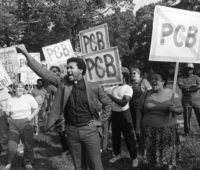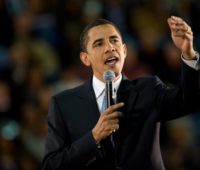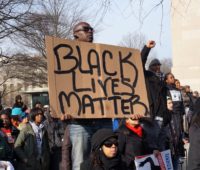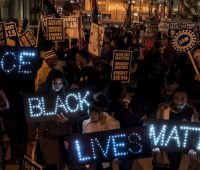In this archive piece from 1992, Joan Martínez-Alier and Eric Hershberg reflect on the then-emerging area of research that examines how poor people’s movements advance the goals of sustainable development. Many popular movements can be seen as having an environmental component to their struggles, whether those struggles arise from direct conflicts over natural resources or from related socioeconomic and political inequities. Rather than traditional notions of the “tragedy of the commons,” the authors find that an “ecology of survival” can lead the poor toward environmental conservation. Thus, poor people’s movements potentially offer models for the improved management of natural resources.
social class
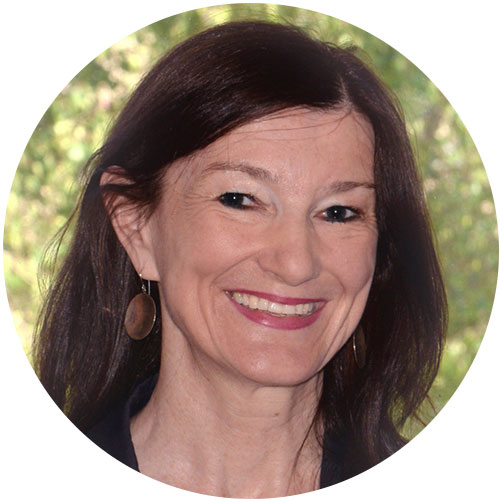
The Loss of (Democratic) Visions and the Unequal Future
by Regina KreideIn this Democracy Paper, Regina Kreide traces the different ways in which social inequality can, and is, undermining democratic politics. Kreide breaks down inequality into three dimensions—growing economic cleavages, deepening political segregation, and cultural invisibility. These trends combine to diminish many citizens’ faith in the future and open the door to populist appeals. The author argues that reversing democratic decline and ultimately inequality itself will take more thoroughgoing collective action beyond piecemeal reforms.

The Banality of Infrastructure
by Nikhil AnandNikhil Anand’s contribution to the “Just Environments” series examines the making of urban inequality, focusing on water infrastructure as a key site for banal yet fundamentally political decision-making that neglects or harms poor citizens. In both Flint and Mumbai, environmental injustice is generated through bureaucratic routines that rarely take into account the humans they affect. Challenging these injustices, Anand argues, requires engaging in the "boring" technopolitics of infrastructure.
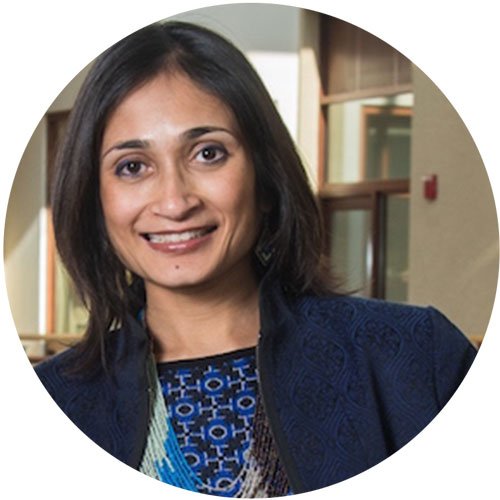
The Environment as Freedom: A Decolonial Reimagining
by Malini RanganathanDrawing upon a long history of anti-racist, feminist, and decolonial struggles, Malini Ranganathan continues our “Just Environments” series with an essay that suggests freedom can serve as a powerful analytic through which to reimagine environmental justice. Ranganathan makes the case that a comprehensive understanding of freedom must include (though, crucially, is not limited to) the ability to live in a safe and clean environment. Situating environmental harms within a broader emancipatory politics, she brings us closer to redressing multiple, intersectional injustices.

Neoliberal Social Justice: From Ed Brooke to Barack Obama
by Leah Wright RigueurLeah Wright Rigueur, as part of our "Reading Racial Conflict" series, critically engages with the career and the writings of Edward Brooke in a reflection on the arguments for and limits of capitalism to uplift African Americans out of poverty. She also deploys Brooke, the first popularly elected black senator in US history who served in the 1960s and 1970s, as a window onto how Barack Obama connects racial inequalities to access to the market. Brooke’s The Challenge of Change: Crisis in Our Two-Party System makes the case for a “progressive conservatism” that sheds light on how parts of the black community today embrace what Rigueur regards as the contemporary neoliberal moment.

What It Means to Be Entitled
by Rachel ShermanRachel Sherman provides a unique contribution to our What is Inequality? theme by focusing on the very top of the income bracket. Based on research among New Yorkers in the “1 percent,” Sherman uncovers the ways they understand and legitimize their wealth, in part through distinguishing their situation from other people of means who may not be “deserving.” Being legitimately “entitled” to affluence, according to the affluent, is based on a set of personal qualities with little reference to broader structural dimensions of inequality.
Neighborhoods and Communities in Concentrated Poverty
by Items EditorsContinuing our series of archival posts on the SSRC’s influential Committee on the Urban Underclass, Council staff associate Martha Gephart reports on efforts by the program to articulate a research agenda on what is now a major focal point in urban studies: neighborhood effects. Early committee discussions engaged not only on the effects of neighborhoods on the socioeconomic prospects of disadvantaged individuals, families, and communities, but also debates on how to define and delimit a “neighborhood” and on the broader social forces that both are channeled through local institutions and that change neighborhoods over time.

Capitalism, Colonialism, and the Long Arc of Black Struggle: Reading Jack O’Dell
by Nikhil Pal SinghNikhil Singh’s essay for our "Reading Racial Conflict" series reflects on the work of black activist and intellectual Jack O’Dell. For Singh, O’Dell’s historical analysis of the relationship between antiracist and anticapitalist movements is relevant in a moment in which voices on the American left are debating the compatibility between politics of the (white) working class vis-à-vis that of marginalized identities. O’Dell’s focus on the reinventing of black freedom struggles over the long term provides an opportunity to consider the present in light of that history.
Economy, Culture, Public Policy, and the Urban Underclass
by Items EditorsIn the second in a series of essays from the Items archives on the SSRC’s Urban Underclass program, Robert Pearson provides an overview of key issues engaged by the program’s advisory committee. Focusing on the concentration and persistence of urban poverty in the United States, the group debated the impact of global economic changes, labor market transformations, the intended and unintended consequences of public policies, and the controversial place of “culture” in understanding the fragile social-economic status of many urban residents and communities.

Beyond the Wages of Whiteness: Du Bois on the Irrationality of Antiblack Racism
by Ella MyersElla Myers provides an account of W. E. B. Du Bois's nuanced analysis of the sense of entitlement among whites in the United States. Drawing from Du Bois's Black Reconstruction and other writings, Myers draws attention to both the concept of a compensatory "wage" that elevates the social status of lower class whites in ways that bind them to white capital, but also to the irrational aspects of antiblack racism. Myers's essay complements the earlier "Reading Racial Conflict" essay by J. Phillip Thompson on Black Reconstruction, and also makes a direct connection to debates on the role of the white working class in Trump's electoral victory.















